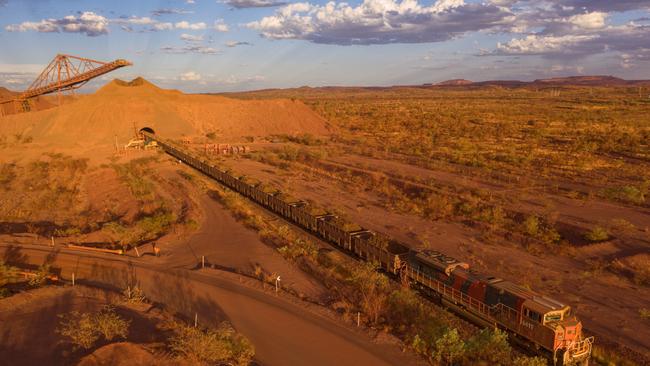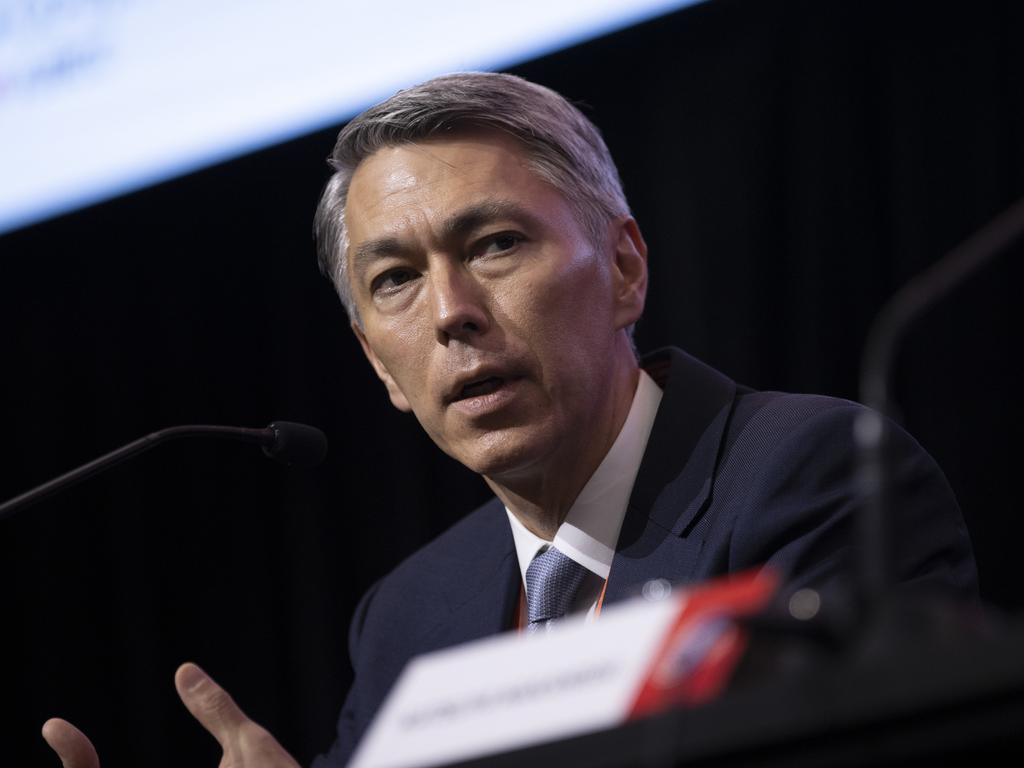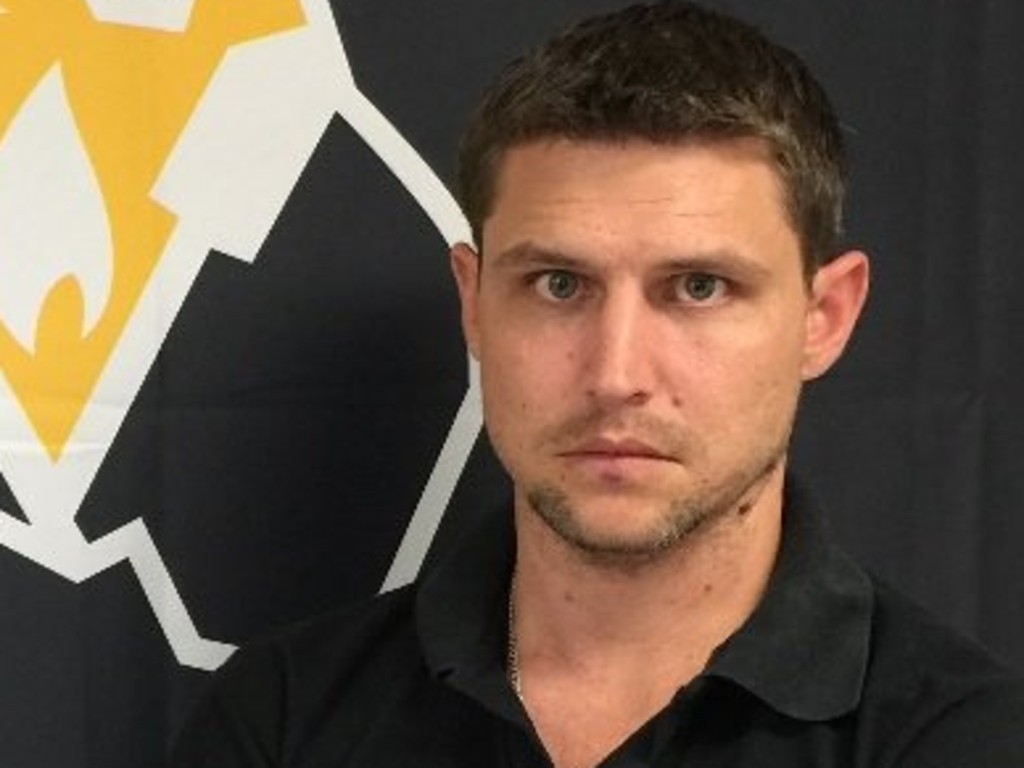BHP train drivers take first industrial action in Pilbara since 2008
About 400 train drivers at BHP’s iron ore division in WA will launch the sector’s first industrial action in the Pilbara for 15 years.

About 400 train drivers at BHP’s iron ore division in Western Australia will launch the sector’s first industrial action in the Pilbara for 15 years as their union accuses the mining giant of dictating working conditions while “raking in massive profits”.
The action against BHP from Friday comes as wharfies give notice of more strikes and bans at DP World in a move the stevedore said would exacerbate supply chain disruption in the lead up to Christmas.
As the Mining and Energy Union finally received the greenlight from the Federal Court to split from the CFMEU from December 1, the MEU’s Western Australian secretary, Greg Busson, said drivers would start their campaign against BHP with bans on the use of the company’s mobile app for rostering.
The ban means drivers’ rosters will not be able to be unilaterally changed by management electronically, without being personally contacted and informed. BHP said the action would present logistic challenges but arrangements had been put in place to mitigate the impact.
The Pilbara region has been largely deunionised and Friday’s industrial action will be the first in the region since 2008.
BHP and the MEU have been bargaining for nearly two years for a replacement to their 2014 agreement. It covers about 500 drivers – almost 400 are union members – who operate trains carrying iron ore from BHP’s Pilbara mines around Newman to Port Hedland.
Mr Busson said it was “fantastic to see workers getting organised and taking collective action after the extreme efforts of the mining companies to deunionise the Pilbara”.
“Drivers are seeking a comprehensive enterprise agreement which ensures they will be consulted about key changes and their terms of employment can be enforced, with access to arbitration. They also want transparency and fairness around pay and conditions for all drivers,” he said.
“Train drivers bent over backwards to ensure the Pilbara iron ore industry continued operating during the upheaval of Covid, often at enormous personal cost to themselves and their families.
“They are not prepared to return to business as usual where BHP dictates their working conditions without listening to the workforce, while raking in massive profits.”
A BHP spokesman said the company had put forward “a good and comprehensive offer that includes increased base salaries and allowances and recognises the important contribution that the rail team makes to our iron ore business in WA”.
“We are working towards an agreed process for resolving disputes relating to workplace arrangements such as rostering, and we believe we are making progress,” the spokesman said.
A key issue in dispute is access to arbitration of workplace disputes by the Fair Work Commission if they are unable to be resolved in the workplace. Arbitration provisions are currently only triggered if both sides agree.
BHP opposes every management decision being subject to commission review and has proposed arbitration only becomes available where the company wants to introduce anything other than an even-time roster in its rail operations.
Meanwhile, the CFMEU’s maritime division announced more strikes and bans would be imposed at DP World, accusing the stevedore of “trying to game the nation’s IR laws by dragging this out for as long as possible rather than sit down and work with the union on a mutually agreeable outcome.”
The protected industrial action from next Monday includes a 24-hour strike In Sydney; a week of rolling two-hour stoppages in Melbourne, Brisbane and Fremantle and a 24 hour stoppage in Brisbane on December 2. Bargaining is due to resume before the commission on December 4.
With negotiations due to return to the commission next month, DP World said the union’s ongoing industrial action was causing substantial disruptions to the nation’s supply chain. “With the Christmas season approaching, these delays – currently spanning 15-20 days – are becoming increasingly detrimental, threatening both the festive spirit and economic stability,” it said.
It said the union’s log of claims equated to a 27.5 per cent pay increase which “appears significantly out of step with the Australian economic context, especially considering the average earnings of $144,000”. This level of increase is not just unprecedented but also unsustainable in the current economic climate,” it said.
The union’s assistant national secretary, Adrian Evans, said workers were seeking a two year agreement that included a 16 per cent pay rise – eight per cent annually – capturing inflation going back two years and bringing DP World workers closer to the industry benchmark.
“Wharfies at Patrick Stevedores for example are already paid more than 10 per cent higher than their colleagues at DP World, and this will blow out to 17 per cent when CPI increases are applied at Patricks in January,” Mr Evans said.
“The majority of our members are classified as ‘Variable Salary Employees’ who are only guaranteed a minimum annual salary of $81,335 per annum, and this requires them to work without a set roster or certainty about the number or pattern of shifts they’re directed to work.”
He said the company’s 27.5 per cent figure combined a series of annual pay increases with legislated increases to the superannuation guarantee into a consolidated sum that includes lawful minimum employment standards like sick leave, long service leave and employer-borne costs like training and workers compensation premiums.






To join the conversation, please log in. Don't have an account? Register
Join the conversation, you are commenting as Logout